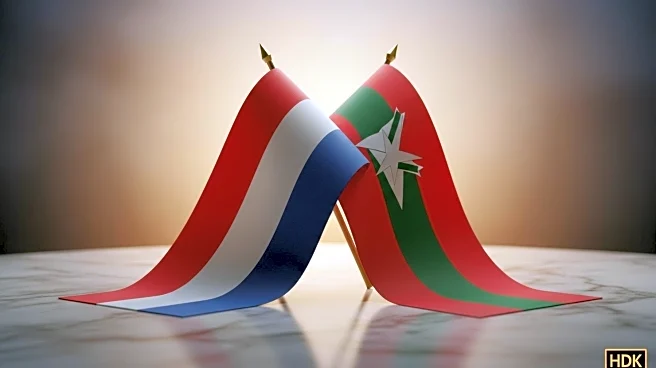What's Happening?
Indian Prime Minister Narendra Modi and Russian President Vladimir Putin met on the sidelines of a regional summit in China, emphasizing their deepening relationship amid strained ties with the U.S. over India's purchase of Russian oil. The meeting occurred during the Shanghai Cooperation Organization summit, where discussions focused on regional stability and energy cooperation. Modi described the partnership with Russia as 'special and privileged,' while Putin hailed the relationship as friendly and trusting. The meeting comes after President Trump imposed steep tariffs on Indian imports, retaliating against India's continued purchase of Russian oil.
Why It's Important?
The strengthening of India-Russia ties highlights the shifting geopolitical dynamics in response to U.S. economic policies. As India faces increased tariffs from the U.S., its closer relationship with Russia could impact global trade patterns and energy markets. The partnership may provide India with strategic leverage, allowing it to navigate international pressures while securing energy supplies. The situation underscores the complexities of international diplomacy, where economic sanctions and tariffs can influence alliances and regional stability. The deepening ties between India and Russia could also affect U.S. influence in the Indo-Pacific region.
Beyond the Headlines
The meeting between Modi and Putin reflects broader geopolitical shifts, where countries are reassessing alliances in response to U.S. policies. India's engagement with Russia and China may signal a move towards a multipolar world, challenging U.S. dominance. The situation raises questions about the effectiveness of economic sanctions as a tool for influencing international behavior. The evolving relationships could lead to new trade agreements and energy partnerships, reshaping global economic landscapes. The diplomatic interactions at the summit highlight the importance of strategic autonomy in foreign policy decisions.











